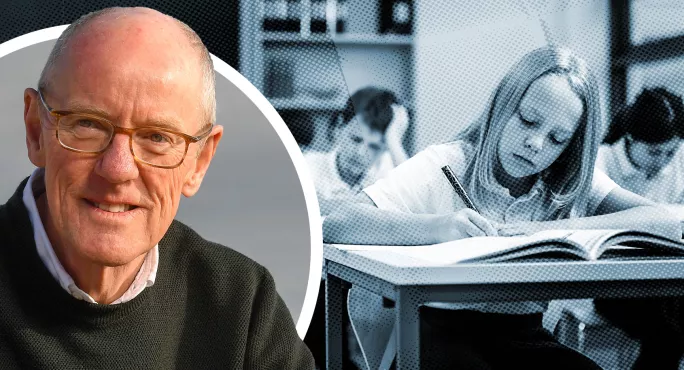Sats: Clarity over ‘rigorous’ test process needed, Gibb told

More could be done to explain the “rigorous processes” behind the development of Year 6 Sats tests, the Standards and Testing Agency (STA) chief has told Nick Gibb, after he asked them to review this year’s tests, which reportedly left pupils in tears.
In a letter to Nick Gibb, seen by Tes, the STA chief executive, Gillian Hillier, said she didn’t believe that any changes were required to the test development process but that more “transparency” around it would “increase public and sector confidence in the primary assessment system”.
It comes after Tes revealed earlier this month that the schools minister, Nick Gibb, had been told by the STA that the key stage 2 Sats reading paper was not more difficult than previous years’ assessments.
- Sats 2023: Reading paper not more difficult, Gibb told
- Sats marking delays: Capita delays marking amid “technical issues”
- Sats 2023: “Chaos” as markers locked out of training
Mr Gibb said last month that he would look at this year’s reading paper, taken by Year 6 pupils, in response to concerns about its level of difficulty.
As a result, Mr Gibb asked the STA for the agency’s “expert assessment” of the difficulty of the English Sats reading test.
A letter sent to Mr Gibb by Ms Hillier, obtained by Tes through a Freedom of Information request, told the minister: “While I don’t believe that any changes are required to the established test construction process, we should definitely consider whether there is more that the STA might do to explain to the sector, and the public, the rigorous processes that we go through in developing our tests.”
Ms Hillier said: “I hope that this kind of transparency will increase public and sector confidence in the primary assessment system.”
The chief executive also said that since the media coverage of this year’s reading paper, the STA had “heard privately from headteachers, multi-academy trust CEOs and other stakeholders that they feel the test was reasonable and that their pupils took it in their stride”.
Ms Hillier also said that she was “confident” that the “content of this year’s test is of similar difficulty to the reading tests of previous years”.
Sarah Hannafin, head of policy at school leaders’ union NAHT, said it was important that lessons were learned from this year.
“While we have no doubt that the STA subjects these tests to a rigorous development process, something clearly went wrong this time,” she said.
“Although the test papers go through various stages of trial with children, those experiences are very different to the realities of taking the live test and so ‘enjoyment ratings’ from children are likely to be skewed.”
Ms Hannafin also said it was the union’s understanding that there is no trial of the final version of the paper, with the actual questions that are selected.
“A significant number of school leaders raised concerns about the reading paper and about the impact the tests have on children’s wellbeing, and these must be taken seriously. We hope that the STA will continue to engage with us and think carefully about how the test development process can be further improved so we don’t have a similar situation in future years.”
Tiffnie Harris, primary and data specialist at the Association of School and College Leaders, described the STA response as “disappointing”.
“The STA does not appear to be listening to the widespread criticism the reading paper has received. Feedback from our members described the paper as unnecessarily difficult and that it left children distressed and teachers anxious about the impact on their pupils.
“Primary schools have worked hard to support their classes in the run-up to this year’s SATs but couldn’t envisage the level of challenge that was presented on the day. We would definitely welcome greater transparency, particularly around the trial process that did not anticipate these major issues,” she added.
Ms Harris said the controversy over the tests this year showed the “entire accountability system is not working”.
“These tests are designed to be a measure of the school, and should not leave 11-year-olds feeling a sense of failure. Strong questions need to be asked about the fairness of this paper, and its reasonability and accessibility for all pupils.
“This lack of desire to learn from previous mistakes only increases the need to bring in new, adaptive assessments that can better allow pupils to demonstrate their ability and provide a fuller of picture of a school’s strengths and weaknesses,” she added.
A Department for Education spokesperson said: “Based on evidence gathered and considered throughout the test development process, STA has confirmed that the content of this paper was in line with previous years.”
“All questions in the paper were trialled with at least 1,000 pupils. In line with standard assessment development approaches, the texts were trialled in various combinations and the final paper was brought together based on the texts which were received most positively and performed most appropriately during the trials.”
You need a Tes subscription to read this article
Subscribe now to read this article and get other subscriber-only content:
- Unlimited access to all Tes magazine content
- Exclusive subscriber-only stories
- Award-winning email newsletters
Already a subscriber? Log in
You need a subscription to read this article
Subscribe now to read this article and get other subscriber-only content, including:
- Unlimited access to all Tes magazine content
- Exclusive subscriber-only stories
- Award-winning email newsletters



